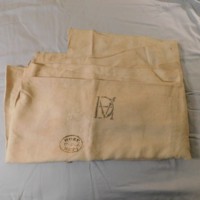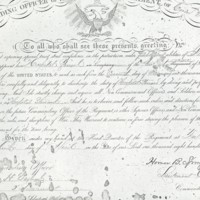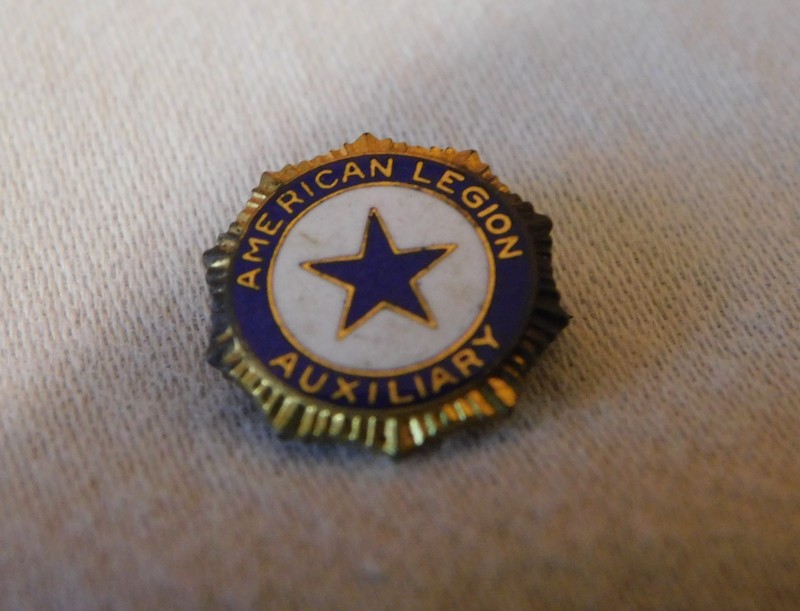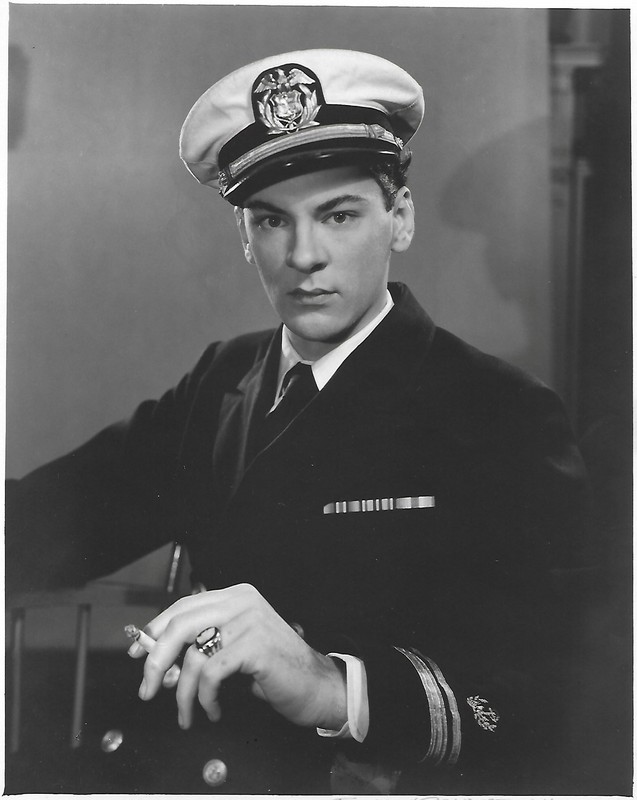Military Life of the Palmer's and Metzger's
Military service has been a part of this family even before they moved into the house in East Haddam. Before Frederic was born, his father, Frederic Palmer Sr., was a hospital steward in the Civil War. This position involved working directly with surgeons whether they were in the hospital or out on the battlefield. Today, this person would be considered a pharmacist. They would be in charge of not only dispensing medications and other medical needs, but also in desperate times the hospital steward needed to know how to create different medicines on the spot. Using it like a souvenir of his time in the war, Frederic Sr. brought home a bed sheet from the hospital he was working in. After he passed, his wife and son continued to keep the memento safe, and a century and a half later the bed sheet is still in good condition.
Civil War Bed Sheet: This beige cotton bed linen is stamped "USA/Hospital Department" with an 'MHD' monogram (stands for Military Hospital Department). Object owned by: CT Landmarks, Photo by: Chelsea Marti
Civil War Promotion Paperwork: This Civil War paperwork is dated 1865. It states that Frederic Courtland Palmer (Frederic's father) has been promoted to the position of Hospital Steward. Object owned and photographed by: CT Landmarks.
Just like many women in this era, Frederic’s mother was involved in military life as well. She was a part of the American Legion Auxiliary and was also a Red Cross nurse during the Spanish-American War.
Howard being on the ship overseas was a major test for his and Frederic’s relationship. Though this was before they moved in together, the two men still had strong feelings for one another (and according to the letters left behind by Frederic, he was not afraid to express those feelings). Unfortunately, during this time it was still considered dangerous to be gay in the military. This era was pre ‘Don’t Ask, Don’t Tell.’ (Don’t Ask, Don’t Tell was established in 1994) Because of this, Howard was afraid of being caught by his shipmates. Having a man write you multipage letters every day (the same type men would get from their wives) looked very suspicious, and since Howard’s mail was being read and censored, he cautioned Frederic on several occasions about the contents of his letters. To keep their relationship going in secret, Frederic’s letters to Howard needed to be more about what he did that day rather than expressing his feelings for Howard, and they also started using certain phrases in their letters that only they knew the meaning behind. For example, in multiple letters to Howard from Frederic, he writes the phrase ‘Take care of yourself. You know what.’ Once Howard was back on land (usually in New York), the letters between the two men could become more sweet and romantic again. For example, he would write things such as ‘I miss you’ and ‘can’t wait until you’re back here.’
During Howard’s involvement, and even up until today, the military has always been a difficult place for the LGBTQ community. With the creation and repeal of “Don’t Ask, Don’t Tell” to the possible transgender ban under the Trump administration, the LGBTQ community does not have a solid footing in a brother/sisterhood built upon the goal of protecting people. They fight for our protection and freedom on a daily basis, while their civilian community members, as well as themselves do not feel or get any of that freedom or protection.




